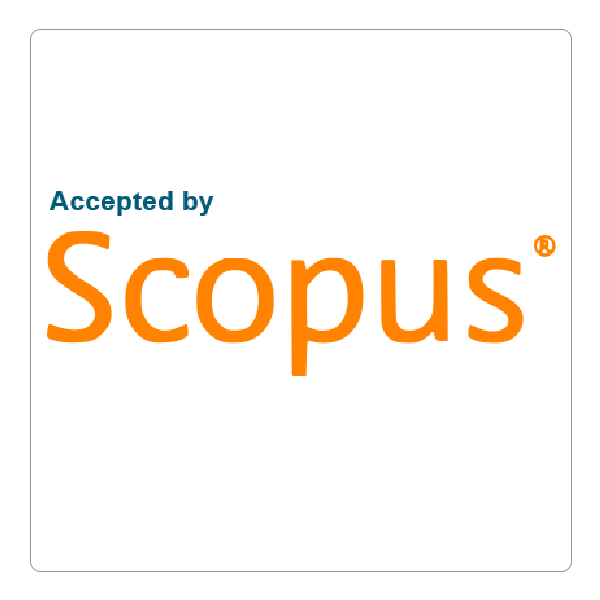How to Cite This Article
Karim, Jalal A. and Hamad, Karim R.
(2023)
"Protective Effect of Fenugreek Supplementation Against Mercury Toxicity on Sperm Parameters, Serum Testosterone and Testicular Tissue in the Rat,"
Polytechnic Journal: Vol. 13:
Iss.
1, Article 19.
DOI: https://doi.org/10.59341/2707-7799.1745
Document Type
Original Article
Abstract
Background and objectives:The purpose of the current study was to investigate the effects of fenugreek supplementation against toxic effect of mercuric chloride (HgCl2)on Body weight (B.W), testis and epididymis weight, some sperm parameters, serum testosterone, serum MDA, and testis histology in the rat.Methods: Twenty eight male albino rats weights ranging from 254 to 302 gm and were divided randomly and equally into 4 groups. Group I: control, Group II: Rats received drinking water contained HgCl2 100 mg/L ad libitum, Group III: Rats received drinking water contained HgCl2 100 mg/L ad libitum, and fenugreek (F1) 0.75 mg/kg/day orally by gavage, Group IV: Rats received drinking water contained HgCl2 100 mg/L ad libitumand fenugreek (F2) 1.5 mg/kg/day orally by gavage. The treatments were given for six weeks.Results: Treatment with F1 caused no substantial changes in body weight, absolute weight, andrelative weight of testis and epididymis, sperm count and testosterone. Whereas sperm motility, and normal sperm were increased significantly, and serum MDA was decreased significantly from HgCl2 group. Improvement was observed partially in testis histology. Meanwhile, the protective effect in F2 generally was more than in F1.Conclusions: the present study revealed that the antioxidant activity of fenugreek supplementreduced toxic effect of mercury. In addition, steroids and/or phytoestrogens in fenugreek possibly compensated the reduced testosterone which resulted at least in part in improvement of sperm parameters and testis histology
Publication Date
9-1-2023
References
ABARIKWU, S., BENJAMIN, S., EBAH, S., OBILOR, G. & AGBAM, G. 2017. Oral administration of Moringa oleifera oil but not coconut oil prevents mercury‐induced testicular toxicity in rats. Andrologia, 49, e12597.
ADELAKUN, S. A., OGUNLADE, B., FIDELIS, O. P. & AJAO, A. A. 2021. Nutritional supplementation of D-Ribose-L-Cysteine suppresses oxidative stress, spermatogenesis and steroidogenesis recovery in rats exposed to mercury chloride: histomorphometry and biochemical evidence. Endocrine and Metabolic Science, 4, 100105.
ANNIDA, B. & PRINCE, P. S. M. 2005. Supplementation of fenugreek leaves reduces oxidative stress in streptozotocin-induced diabetic rats. Journal of medicinal food, 8, 382- 385.
BANCROFT, J. D. & GAMBLE, M. 2008. Theory and practice of histological techniques, Elsevier health sciences.
BASET, M. E., ALI, T. I., ELSHAMY, H., EL SADEK, A. M., SAMI, D. G., BADAWY, M. T., ABOUZEKRY, S. S., HEIBA, H. H., SAADELDIN, M. K. & ABDELLATIF, A. 2020. Anti-diabetic effects of fenugreek (Trigonella foenumgraecum): A comparison between oral and intraperitoneal administration-an animal study. International journal of functional nutrition, 1, 1- 1.
BOUJBIHA, M. A. M., HAMDEN, K., GUERMAZI, F., BOUSLAMA, A., OMEZZINE, A. & EL FEKI, A. 2011. Impairment of spermatogenesis in rats by mercuric chloride: involvement of low 17βestradiol level in induction of acute oxidative stress. Biological trace element research, 142, 598-610.
CHOY, C. M., YEUNG, Q. S., BRITON-JONES, C. M., CHEUNG, C.-K., LAM, C. W. & HAINES, C. J. 2002. Relationship between semen parameters and mercury concentrations in blood and in seminal fluid from subfertile males in Hong Kong. Fertility and sterility, 78, 426-428.
DUKE, J. A. 2002. Handbook of medicinal herbs, CRC press.
FLECKNELL, P. 2009. Anaesthesia of common laboratory species: special considerations. Laboratory animal anaesthesia, 181.
GOUDARZI, M., KALANTAR, M. & KALANTAR, H. 2017. The hepatoprotective effect of gallic acid on mercuric chloride-induced liver damage in rats. Jundishapur Journal of Natural Pharmaceutical Products, 12.
HAMAD, K. R. 2021. Effect of Fenugreek Seeds in Maternal Diet on Some Features of Newborn Pups in Albino Mice. Polytechnic Journal, 11, 42-47.
HAMDEN, K., JAOUADI, B., CARREAU, S., AOUIDET, A., EL-FAZAA, S., GHARBI, N. & ELFEKI, A. 2010. Potential protective effect on key steroidogenesis and metabolic enzymes and sperm abnormalities by fenugreek steroids in testis and epididymis of surviving diabetic rats. Archives of physiology and biochemistry, 116, 146-155.
HEATH, J. C., ABDELMAGEED, Y., BRADEN, T. D. & GOYAL, H. O. 2012. The effects of chronic ingestion of mercuric chloride on fertility and testosterone levels in male Sprague Dawley rats. Journal of Biomedicine and Biotechnology, 2012.
HENKEL, R. 2005. The impact of oxidants on sperm function. Andrologia, 37, 205-206.
JAHAN, S., AZAD, T., AYUB, A., ULLAH, A., AFSAR, T., ALMAJWAL, A. & RAZAK, S. 2019. Ameliorating potency of Chenopodium album Linn. and vitamin C against mercuric chloride-induced oxidative stress in testes of Sprague Dawley rats. Environmental health and preventive medicine, 24, 1-13.
KALENDER, S., UZUN, F. G., DEMIR, F., UZUNHISARCıKLı, M. & ASLANTURK, A. 2013. Mercuric chloride-induced testicular toxicity in rats and the protective role of sodium selenite and vitamin E. Food and chemical toxicology, 55, 456-462.
KASSEM, A., AL-AGHBARI, A., AL-HABORI, M. & AL-MAMARY, M. 2006. Evaluation of the potential antifertility effect of fenugreek seeds in male and female rabbits. Contraception, 73, 301-306.
KAUR, S. & SADWAL, S. 2020. Studies on the phytomodulatory potential of fenugreek (Trigonella foenum‐graecum) on bisphenol‐A induced testicular damage in mice. Andrologia, 52, e13492.
MANSOUR, A. B., ABOU ELGHAIT, A., ABOYOUSSEF, A., S ABDELWAHAB, N. & HELALY, H. 2021. A COMPARATIVE STUDY ON THE EFFECTS OF THE FENUGREEK SEEDS'POWDER AND ITS AQUEOUS AND OIL EXTRACTS ON THE MALE REPRODUCTIVE SYSTEM IN ALBINO RATS. Bulletin of Pharmaceutical Sciences. Assiut, 44, 593-605.
MARTINEZ, C. S., TORRES, J. G. D., PECANHA, F. M., ANSELMO-FRANCI, J. A., VASSALLO,D. V., SALAICES, M., ALONSO, M. J. & WIGGERS, G. A. 2014. 60-Day chronic exposure to low concentrations of HgCl2 impairs sperm quality: hormonal imbalance and oxidative stress as potential routes for reproductive dysfunction in rats. PLoS One, 9, e111202.
PENNA, S., POCINO, M., MARVAL, M. J., LLORETA, J., GALLARDO, L. & VILA, J. 2009. Modifications in Rat Testicular Morphology and Increases in IFN-γ Serum Levels by the Oral Administration of Subtoxic Doses of Mercuric Chloride. Systems Biology in Reproductive Medicine, 55, 69-84.
MANFO, F., A NANTIA, E. & P MATHUR, P. 2014. Effect of environmental contaminants on mammalian testis. Current molecular pharmacology, 7, 119-135.
RAO, M. V. & SHARMA, P. 2001. Protective effect of vitamin E against mercuric chloride reproductive toxicity in male mice. Reproductive Toxicology, 15, 705-712.
RISHER, J. F. & AMLER, S. N. 2005. Mercury exposure: evaluation and intervention: the inappropriate use of chelating agents in the diagnosis and treatment of putative mercury poisoning. Neurotoxicology, 26, 691-699.
RIZZETTI, D. A., MARTINEZ, C. S., ESCOBAR, A. G., DA SILVA, T. M., URANGA-OCIO, J. A., PECANHA, F. M., VASSALLO, D. V., CASTRO, M. M. & WIGGERS, G. A. 2017. Egg white-derived peptides prevent male reproductive dysfunction induced by mercury in rats. Food and Chemical Toxicology, 100, 253-264.
ROBERTSON, K. M., O’DONNELL, L., SIMPSON, E. R. & JONES, M. E. 2002. The phenotype of the aromatase knockout mouse reveals dietary phytoestrogens impact significantly on testis function. Endocrinology, 143, 2913-2921.
SAKR, S. A., EL-SHENAWY, S. M. & AL-SHABKA, A. M. 2012. Aqueous fenugreek seed extract ameliorates adriamycin-induced cytotoxicity and testicular alterations in albino rats. Reproductive Sciences, 19, 70-80.
SHARMA, P. & SINGH, R. 2010. Protective role of curcumin on lindane induced reproductive toxicity in male Wistar rats. Bulletin of environmental contamination and toxicology, 84, 378-384.
SHEKHA, M. S., QADIR, A. B., ALI, H. H. & SELIM, X. E. 2014. Effect of fenugreek (Trigonella foenum-graecum) on ethylene glycol induced kidney stone in rats. Jordan J Biol Sci, 7, 257- 260.
SNEHLATA, H. S. & PAYAL, D. R. 2012. Fenugreek (Trigonella foenum-graecum L.): an overview. Int J Curr Pharm Rev Res, 2, 169-87.
SU, L., WANG, M., YIN, S.-T., WANG, H.-L., CHEN, L., SUN, L.-G. & RUAN, D.-Y. 2008. The interaction of selenium and mercury in the accumulations and oxidative stress of rat tissues. Ecotoxicology and Environmental Safety, 70, 483-489.
TAHA, A. T. 2011. EFFCET OF DIETARY SUPPLEMENTATION WITH DIFFERENT LEVELS OF FENUGREEK SEEDS (Trigonella foenum graecum) ON SEMEN. Diyala Agricultural Sciences Journal, 3, 1-9.
YACOUBI, L., RABAOUI, L., HAMDAOUI, M. H., FATTOUCH, S., SERAIRI, R., KOURDA, N. & KHAMSA, S. B. 2011. Anti-oxidative and anti-inflammatory effects of Trigonella foenumgraecum Linnaeus, 1753 (Fenugreek) seed extract in experimental pulmonary fibrosis. Journal of Medicinal Plants Research, 5, 4315- 4325.
YADAV, U. C. & BAQUER, N. Z. 2014. Pharmacological effects of Trigonella foenumgraecum L. in health and disease. Pharmaceutical biology, 52, 243-254.
YOSHIKAWA, M., MURAKAMI, T., KOMATSU, H., MURAKAMI, N., YAMAHARA, J. & MATSUDA, H. 1997. Medicinal foodstuffs. IV. Fenugreek seed.(1): structures of trigoneosides Ia, Ib, IIa, IIb, IIIa, and IIIb, new furostanol saponins from the seeds of Indian Trigonella foenum-graecum L. Chemical and pharmaceutical bulletin, 45, 81-87.
YUCRA, S., GASCO, M., RUBIO, J., NIETO, J. & GONZALES, G. F. 2008. Effect of different fractions from hydroalcoholic extract of Black Maca (Lepidium meyenii) on testicular function in adult male rats. Fertility and sterility, 89, 1461-1467.
YUSHARYAHYA, S. N., BRAMONO, K., HESTIANTORO, A., EDWAR, S. Q. & KUSUMA, I. 2020. Fenugreek (Trigonella foenum-graceum) increases postmenopausal fibroblast-associated COL1A1 and COL3A1 production dominantly through its binding to estrogen receptor beta. Journal of Applied Pharmaceutical Science, 10, 022-027.











Follow us: